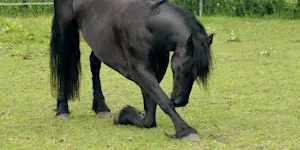What Makes This Word Tick
The word "quisling" is a noun traditionally defined as a traitor who collaborates with an enemy force occupying their country. It carries a heavy historical connotation and is often used to denote acts of treachery or betrayal on a national scale.
If Quisling Were a Person…
Imagine a double agent at a classic spy movie cocktail party, sidling up to the villains with a sly smile and a whispered offer to switch sides. Or maybe it’s that notorious neighbor who borrows your tools and never quite gets around to returning them because they’ve found a more lucrative partnership with someone else’s shed.
How This Word Has Changed Over Time
"Quisling" has not mellowed with age. Born out of World War II, it retains its sharp edge, synonymous with duplicity and treason. Over time, its usage has broadened to include anyone perceived as betraying their friends, principles, or nation for personal gain. However, the sting remains just as potent as ever.
Old Sayings and Proverbs That Use Quisling
While there aren't ancient proverbs using "quisling" (as it’s relatively modern), the sentiment of treachery is timeless. Proverbs like "A snake in the grass" and "Beware of wolves in sheep’s clothing" capture its spirit.
Surprising Facts About Quisling
The word comes from the surname of Vidkun Quisling, a Norwegian military officer who infamously collaborated with Nazi Germany. His name became a byword for "traitor" almost immediately in Britain and spread worldwide.
Out and About With This Word
You might not stumble across "quisling" at your local coffee shop or while chatting about the weather, but in discussions of politics, history, or ethics, it makes a dramatic entrance. It’s not a word for everyday chatter but comes in handy when discussing weighty matters of allegiance.
Pop Culture Moments Where Quisling Was Used
While "quisling" may not top pop culture charts, it has appeared in various media forms, often in politically charged contexts or historical dramas. It’s the type of word that might emerge in a tense scene of a Cold War thriller or during a spirited debate on political betrayal.
The Word in Literature
In literature, "quisling" often appears in war novels, political commentaries, and dystopian stories exploring themes of betrayal and loyalty. It fits snugly in narratives where trust is scarce, and allies are few.
Moments in History with Quisling
Aside from its notorious origin, consider the broader theme: moments like the betrayal of Julius Caesar, famously lamented with "Et tu, Brute?" Though predating the term by centuries, it embodies the quintessential spirit of a "quisling."
This Word Around the World
Around the globe, the concept of a "quisling" translates into various languages but often retains the original name due to its distinct and historical roots. In many cultures, a local equivalent highlights national experiences with betrayal.
Where Does It Come From?
Directly linked to Vidkun Quisling, his surname was adopted into English during the 1940s as shorthand for treachery. Few surnames in history have managed to become part of the global lexicon with such an infamous twist.
How People Misuse This Word
Some might throw around "quisling" too lightly, using it for minor betrayals or grudges. But the heart of a true "quisling" speaks to grave, often political, betrayals, so applying it to less serious matters can dilute its historical gravitas.
Words It’s Often Confused With
Collaborator: This can imply merely working together, lacking the treacherous undertone.
Defector: Indicates leaving a group, often without the accompanying deceit implied by "quisling."
Betrayer: A broader term that doesn’t necessarily include the political or wartime context of "quisling."
Additional Synonyms and Antonyms
Synonyms: Traitor, turncoat, backstabber
Antonyms: Loyalist, patriot, supporter
Want to Try It Out in a Sentence?
During the tense negotiations, the ambassador’s unexpected shift to the opposition’s side led to whispers of him being the team’s very own quisling.
















